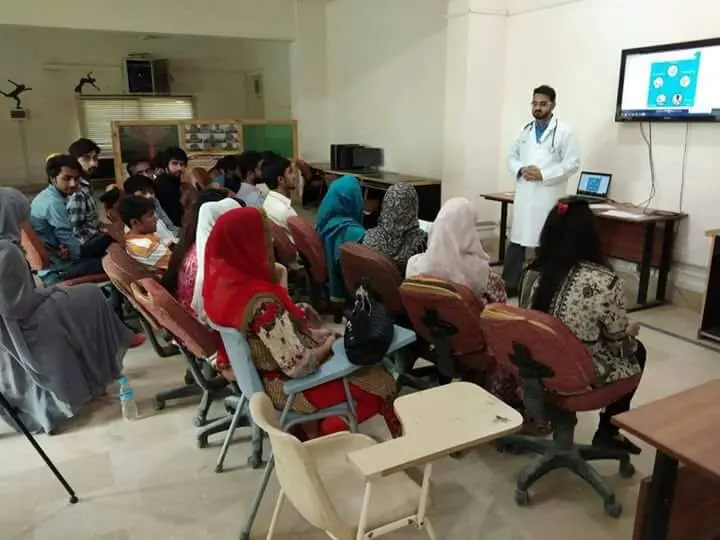Finding the best nutritionist in Pakistan
Nutrition is a crucial aspect of leading a healthy lifestyle. In Pakistan, where malnutrition and food insecurity are prevalent, the role of a nutritionist in Pakistan is critical in promoting healthy eating habits and addressing nutritional deficiencies.
A nutritionist is a professional who specializes in the study of food and its effect on the human body. They work with individuals to assess their nutritional needs, create personalized meal plans, and provide education on healthy eating habits. In Pakistan, there is a growing demand for nutritionists, as people become more aware of the importance of maintaining a healthy diet.

The Role of a Nutritionist in Pakistan
The role of a nutritionist in Pakistan is multifaceted. They work with individuals, families, and communities to address issues related to malnutrition, obesity, and chronic diseases such as diabetes and hypertension. Nutritionists also work in schools, hospitals, and other healthcare settings to provide education and support to individuals with specific dietary needs.
One of the primary responsibilities of a nutritionist in Pakistan is to assess an individual’s nutritional status. This involves evaluating their dietary habits, medical history, and lifestyle factors such as physical activity levels and stress. Based on this assessment, the nutritionist can create a personalized meal plan that meets the individual’s nutritional needs and promotes optimal health.
Role in controlling malnutrition
Nutritionists in Pakistan also play a critical role in addressing issues related to malnutrition. According to the World Food Programme, nearly 40% of children in Pakistan are malnourished. Malnutrition can have significant long-term effects on a child’s physical and cognitive development, making it essential to address this issue early on.
Nutritionists work with families and communities to promote healthy eating habits and address nutritional deficiencies. This may involve educating parents on the importance of breastfeeding, providing guidance on introducing solid foods to infants, and promoting the consumption of nutrient-rich foods such as fruits, vegetables, and whole grains.
Managing obesity
In addition to addressing issues related to malnutrition, nutritionists in Pakistan also play a critical role in addressing the growing problem of obesity and chronic diseases. According to the Pakistan Medical Association, the prevalence of obesity in Pakistan has tripled over the past two decades, making it a significant public health concern. If you are looking to reduce or gain weight or simply wish to remain fit and healthy, Dr. Ikram is one the top leading nutritionists in Pakistan. A clinical research and medical physician, Dr. Ikram leads a team of renowned qualified dietitians that are committed to helping you achieve your weight management goals. Additionally, Diet Kitchen is another such nutritional venture of Dr. Ikram and his team that provides customized diet meals and products at the doorstep of fitness enthusiasts in Pakistan.
Nutritionists work with individuals who are overweight or obese to create personalized meal plans that promote weight loss and improve overall health. They also provide education on healthy eating habits and lifestyle changes that can reduce the risk of chronic diseases such as diabetes and hypertension.
Overall, the role of a nutritionist in Pakistan is critical in promoting healthy eating habits and addressing nutritional deficiencies. As the demand for nutritionists continues to grow, it is essential to ensure that they receive the proper training and education to meet the needs of the population.
In Pakistan, several universities offer degree programs in nutrition and dietetics, providing students with the knowledge and skills they need to become qualified nutritionists. Additionally, professional organizations such as the Pakistan Nutrition and Dietetic Society provide resources and support to nutritionists and promote the importance of nutrition education and research in Pakistan.
In conclusion, the role of a nutritionist in Pakistan is critical in promoting healthy eating habits and addressing issues related to malnutrition, obesity, and chronic diseases. As the demand for nutritionists continues to grow, it is essential to prioritize nutrition education and research to ensure that the population receives the best possible care.
